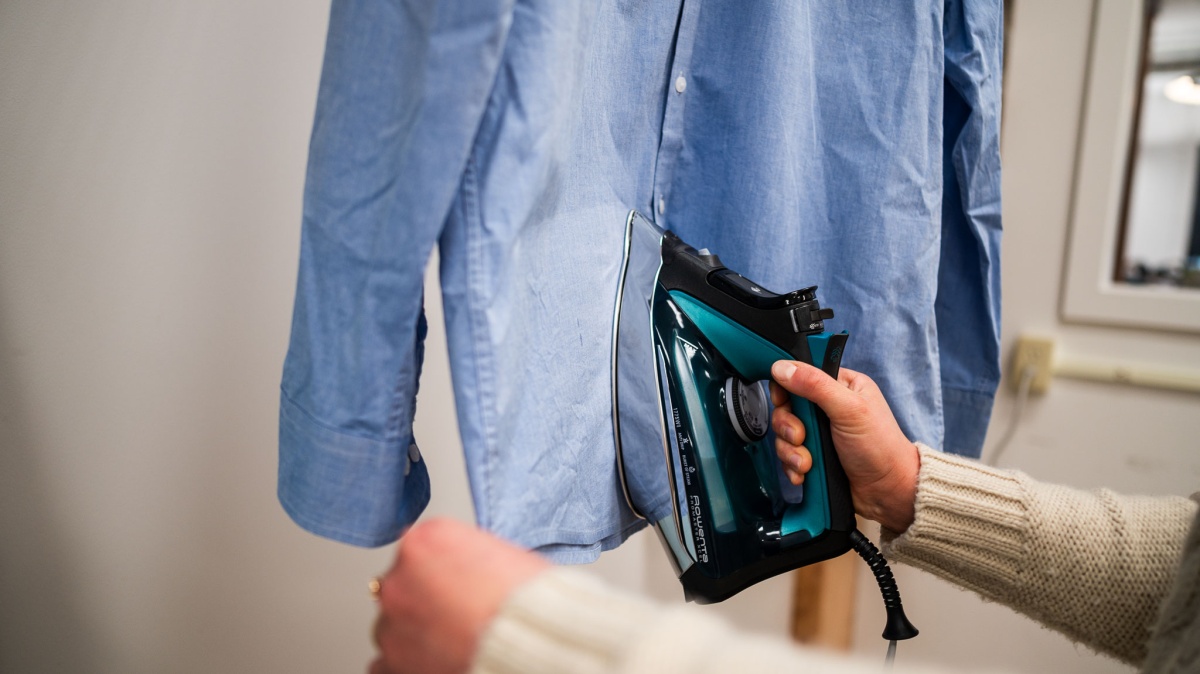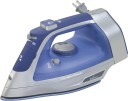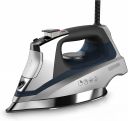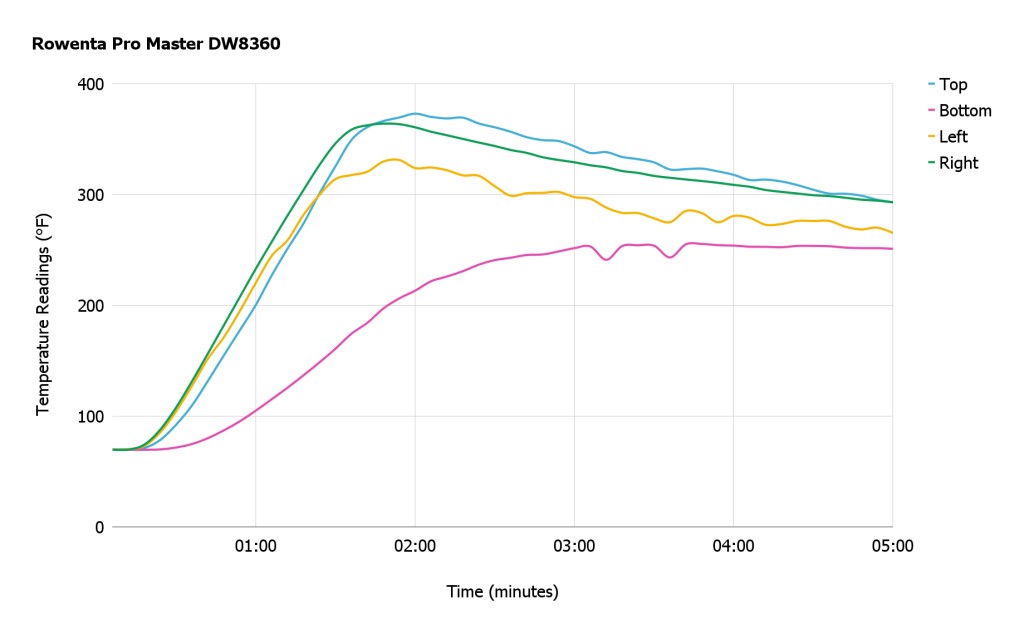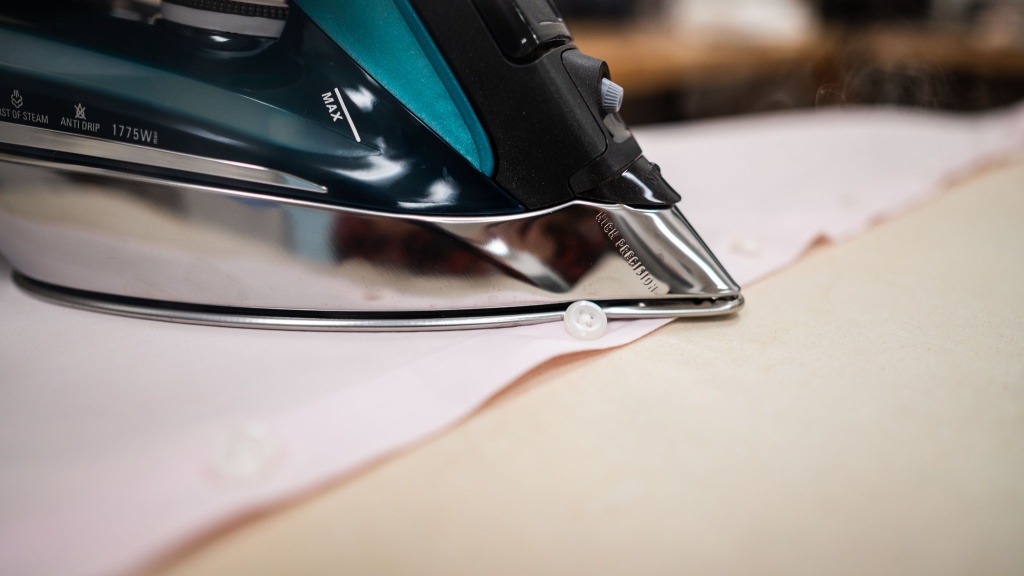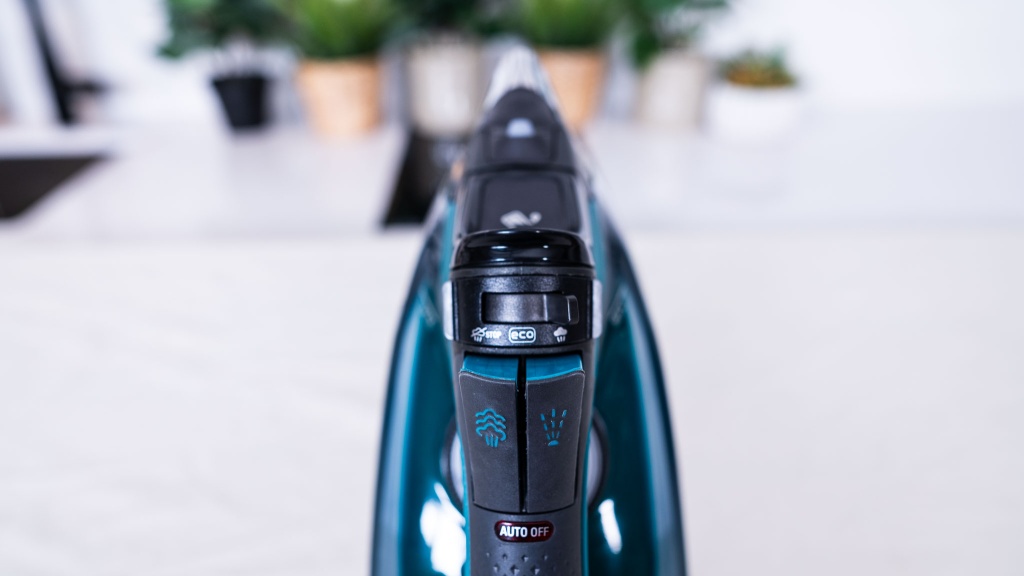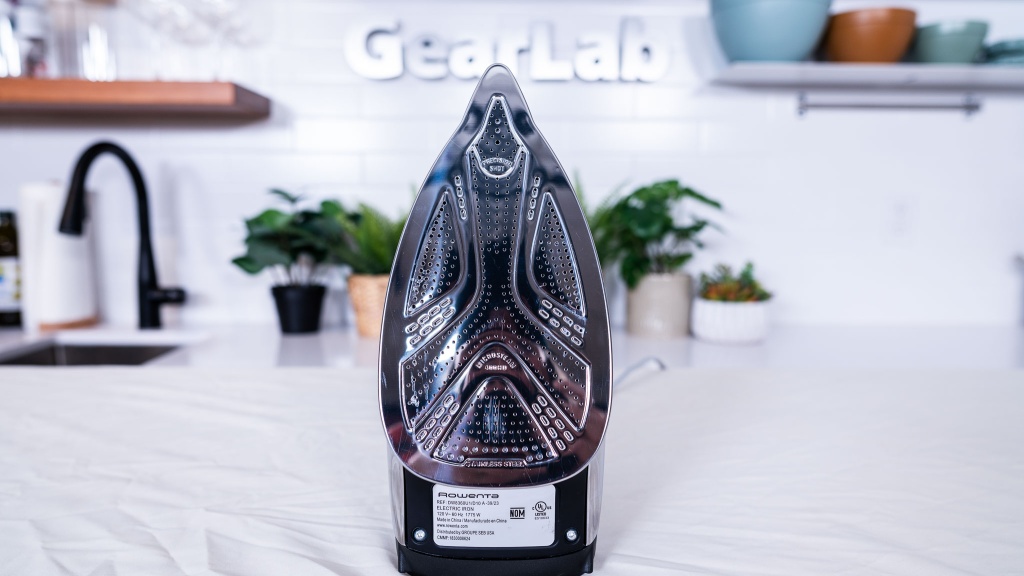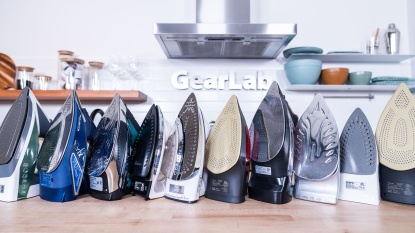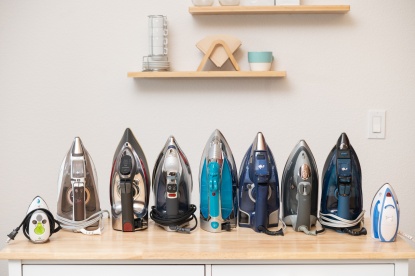Our Verdict
Compare to Similar Products
 This Product Rowenta Pro Master Xcel DW8360U1 | |||||
|---|---|---|---|---|---|
| Awards | Best Iron for Detailing | Best Overall Iron | Best for Delicate Fabrics | Best for Small Jobs | |
| Price | $100 List $84.71 at Amazon | $35 List $34.99 at Amazon | $55 List $44.99 at Amazon | $110 List $99.99 at Amazon | $34 List $28.56 at Amazon |
Overall Score  |
|||||
| Star Rating | |||||
| Bottom Line | This iron delivers reliable performance and versatility, but it comes with a weighty build and a substantial price tag | A little clunky, but an impressive iron overall, with strong steam performance | An iron that easily tackles most wrinkles quickly and efficiently regardless of the material | This is an excellent iron for quick tasks and ultimate maneuverability, but it isn't well suited to longer ironing sessions due to its need to dock for reheating | Good ironing performance and detailing work, but uneven heating keeps this iron from being even better |
| Rating Categories | Rowenta Pro Master... | Hamilton Beach Dura... | Black+Decker D3030... | Panasonic Cordless... | Black+Decker Profes... |
| Ironing Performance (40%) | |||||
| Steam Output (25%) | |||||
| Heating (15%) | |||||
| Detailing (10%) | |||||
| Ease of Use (10%) | |||||
| Specs | Rowenta Pro Master... | Hamilton Beach Dura... | Black+Decker D3030... | Panasonic Cordless... | Black+Decker Profes... |
| Measured Steam Output | 108 g | 196 g | 87 g | 29 g | 82 g |
| Measured Average Temperature | 297 °F | 309 °F | 304 °F | 337 °F | 293 °F |
| Number of Steam Holes | 550 | 192 | 23 | 32 | 18 |
| Wattage | 1775W | 1500W | 1600W | 1500W | 1500W |
| Weight | 3.1 lbs | 3.4 Ibs | 1.9 lbs | 2.1 lbs | 2.1 Ibs |
| Cord Length | 8.2' | 8.1' | 8' | 6' | 9' |
| Soleplate Material | Stainless Steel | Non-stick | Stainless Steel | Ceramic | Stainless Steel |
Our Analysis and Test Results
Performance Comparison
Ironing Performance
We conduct tests on cotton, linen, silk/satin, and polyester fabrics to evaluate ironing effectiveness, following the iron's recommended temperature settings for each material. The Rowenta Pro Master DW8360 was among the highest performers in this series of tests, demonstrating its aptitude across a wider variety of fabrics than most.
Cotton requires more heat to iron effectively than other fabrics, so we were pleased that the Pro Master came up to temperature quickly and could eliminate nearly all the wrinkles from our cotton test fabric with as few as three passes. Surprisingly, linen is one fabric type that the Rowenta does well enough ironing but did not excel at in our testing. It took around six passes to remove the majority of the wrinkles from the linen test fabric, while some of the other irons could do it in half as many passes.
The Rowenta Pro Master redeemed itself on silk and satin fabrics where many irons struggle. Like all of the other irons, it takes additional passes to de-wrinkle silk and satin material, but where some of the others fail to remove all of the wrinkles without resorting to steam or damaging the fabrics, the Pro Master was able to remove nearly 90% of wrinkles without resorting to steam. Performance on polyester fabrics was nearly the same story. This Rowenta rendered a smooth polyester sheet after around a dozen passes, whereas some irons struggle to remove any wrinkles from polyester effectively.
Steam Output
To gauge every iron's steam output, we filled each reservoir to its maximum capacity and recorded the initial weight with a full tank of water. Then, after preheating the iron to reach its highest temperature setting for three minutes, we proceeded to iron for two minutes using the steam function. We reweighed the iron after the preheating and steam ironing period to quantify the water converted into steam.
We exclusively used the standard steam mode during the assessment, foregoing any concentrated steam burst or spray features. The Rowenta Pro Master performed above average in this test. Its initial mass was 1745.4 grams when full of water and 1637.3 grams after the warm-up and steam ironing period. That means it converted a commendable 108 grams of water to steam over the course of our test.
Heating
To assess heat output, we set the iron's heating element to its maximum and let it reach full temperature over five minutes. Following this, we took temperature measurements from four probes placed at different positions on the iron's soleplate: top, bottom, middle left, and middle right.
The Pro Master came in a little below average in its maximum heat output, with an average temperature of 297 degrees Fahrenheit during the five-minute test. It got the hottest in the middle right of the sole plate at 320 degrees and the coolest at the bottom at 246 degrees. However, in overall heating performance, it did well, coming up to temperature quickly and maintaining adequate heat for all tasks set before it.
Detailing
This metric assesses the iron's performance in delicate tasks such as navigating around buttons, shaping specific features like pleats, and overall handling across the ironing board. Elements such as weight and handle ergonomics were also considered for this evaluation. The Pro Master exceeded nearly every other iron we tested for detailing work and handling.
This Rowenta's tapered nose is exceptionally useful for easily reaching around tight spots such as pleats and seams. Thanks to its shape, maneuvering around and under buttons is also enhanced. However, users should exercise caution when ironing backward too quickly, as there's a risk of creating seams, mainly due to the Pro Master's larger size compared to some other irons. This bulkiness also makes it less maneuverable in collar panels and armpits.
We liked the Pro Master's handle design and grip for the most part, especially when moving it on the ironing board. However, we accidentally sprayed water by pressing the button while holding the iron upright on more than one occasion. That's because the iron is heavy, and the steam and spray buttons are integrated into the handle so that if the iron slides down in your grip, they are easily depressed.
Ease of Use
This metric measures several aspects of the iron, like the performance of the water spray mechanism, the convenience of water refilling, the cord's design, and the temperature indicator's (if any) effectiveness. The Pro Master did well here, for the most part.
We liked that the 8-foot and 2-inch cord was long enough for good maneuverability and that it was attached to the base of the iron to keep it out of the way when moving across the board. We also appreciated that it was easy to wrap the cord around the iron base when we were finished ironing. The water fill port for the steam functions is an inch wide and easy to fill with the sink faucet, with an easy-to-read max fill line visible from both sides of the iron.
Although it lacks a dedicated temperature dial, the Pro Master features a small red power indicator light to let you know the iron is on. A typical dial-style heat controller is conveniently labeled with different fabric settings and steam usage options.
Should You Buy the Rowenta Pro Master Xcel DW8360U1?
This iron is a great choice if you're looking for a solid and versatile ironing tool. Its tapered nose design allows for easy detail work, and the Pro Master makes short work of wrinkles across most types of fabric. We appreciated its long and well-placed cord design staying out of the way during our ironing, but we did feel the heft of this iron diminished the handling a bit. Lastly, the Pro Master is expensive for a traditional-styled iron, but it's hard to beat if you want something for daily detail work.
What Other Irons Should You Consider?
If you want more freedom of movement and superior handling, check out the Panasonic Cordless Advanced Ceramic. It's cordless, weighs a full pound, and is lighter than the Pro Master. It's also well suited for detail work, but it's not quite as efficient as the Pro Master. If you just want to save substantial money on a quality iron, check out the well-rounded Hamilton Beach Durathon 19803 for its excellent value-to-performance ratio.


